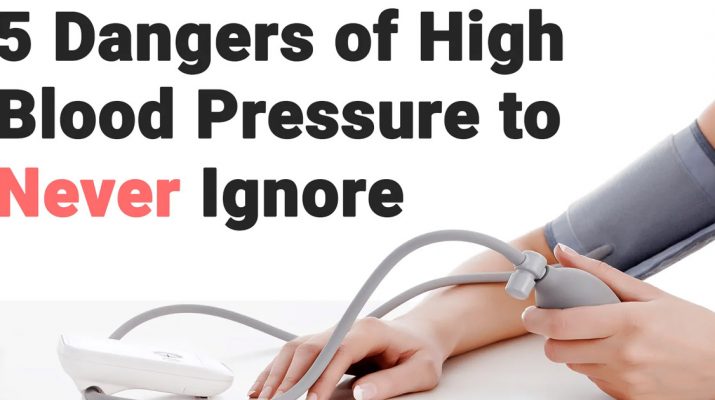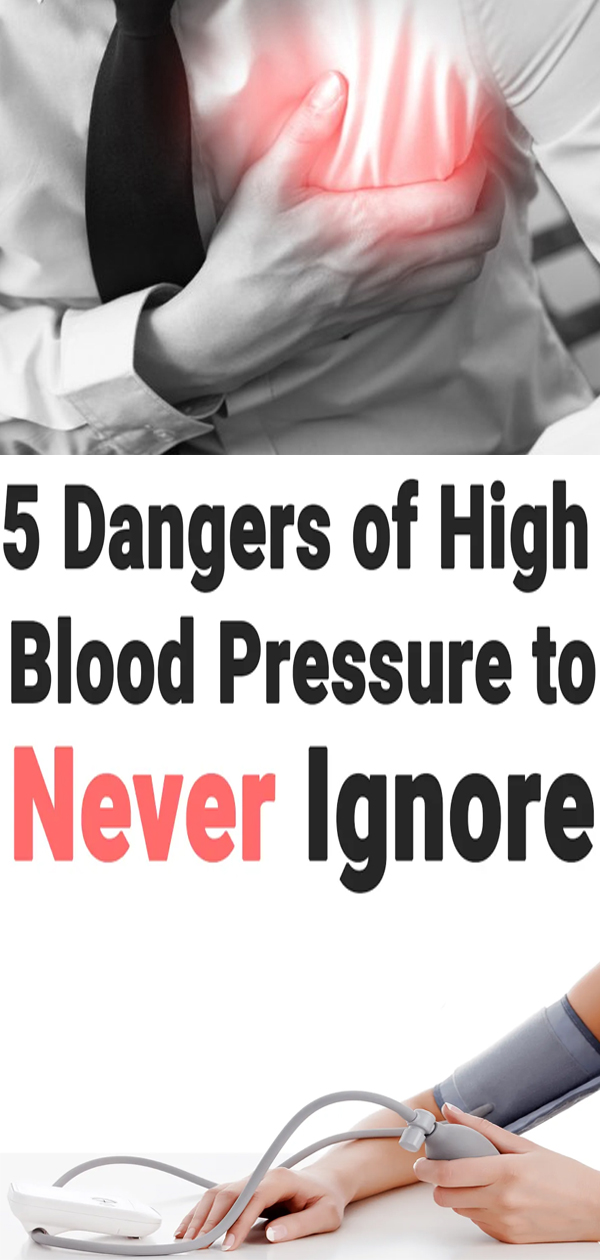Did you know that high blood pressure, or hypertension, is now defined as having a blood pressure (BP) of 130/80? With this new measurement, experts estimate that 46% of U.S. adults have Stage 1 hypertension. Here are what is now defined as ‘normal’ and ‘elevated’ blood pressure and ‘stage 1’ and ‘stage 2’ hypertension:
- Normal: Less than (<) 120 systolic, and less than 80 diastolic, or <120/80
- Elevated: 120-129/<80
- Stage 1 hypertension: 130-139/80-89
- Stage 2 hypertension: Greater than (>) 140 systolic, and greater than 90 diastolic, or >140/90
The top number, systolic pressure, measures that of your arteries when your heartbeats. The lower number, diastolic pressure, measures the pressure of your arteries between heartbeats.
High blood pressure is dangerous and becomes increasingly so as it rises. Here, we are going to talk about the potential dangers of high blood pressure (HBP) and things that you can do to improve your blood pressure health.
Here Are 5 Dangers Of High Blood Pressure You Don’T Want To Ignore
“High blood pressure (hypertension) can quietly damage your body for years before symptoms develop. Left uncontrolled, you may wind up with a disability, a poor quality of life or even a fatal heart attack.” – Mayo Clinic Staff
Danger #1: Heart Attack Or Heart Disease
High blood pressure damages the body if left unchecked. Remember that the health of blood vessels is vital for every part of the body, including organs, to receive the blood-oxygen it needs to function. Hypertension raises the risk of various heart-related diseases and disorders, including:
Coronary artery disease: This disorder affects the arteries responsible for supplying blood to the heart. CAD causes the narrowing of these arteries, cutting off needed blood-oxygen. CAD may lead to heart attack, chest pain, or irregular heartbeat.
Heart failure: The strain that hypertension places on the heart will cause it to weaken. Eventually, the heart may not be able to sustain the extra work required of it, which may lead to heart failure.
Danger #2: Brain Damage
The brain requires a steady supply of blood to operate. When this blood supply drops, brain cells may begin to die, leading to potentially life-threatening or debilitating health complications. These complications include:
Transient ischemic attack (TIA): A short-term disruption of blood supply that’s usually the result of a blood clot. A TIA is a big warning that someone may be headed for a full-on stroke.
Impairment: The brain is responsible for cognitive processing, an energy-intensive task which is dependent on blood-oxygen. When blood supply is disrupted, it can no longer function at standard capacity, thus risking impairment.
Stroke: A stroke is the worst thing that can happen to the brain. At this stage, brain cells are rapidly dying. Without medical intervention, a stroke may lead to disability or death.
Danger #3: Kidney Damage
Our kidneys’ primary responsibility is filtering waste out of the blood – a process that, in itself, requires sturdy blood vessels. High blood pressure can cause all sorts of kidney problems, including:
Aneurysm: When something obstructs a blood vessel, it may lead to a buildup of fluid which forms a bulge, or aneurysm. When the blood vessel wall can no longer contain the fluid that’s been building up, it may burst.
Kidney scarring: Scarring of the kidneys is usually the final step before kidney failure. Kidney scarring can occur for a variety of reasons, including disease, drug abuse, HIV, or diabetes. Since scarring occurs in a cluster, the kidney may not be able to filter out waste – which may lead to failure.
Kidney failure: When a kidney cannot filter waste from the blood, dangerously high levels of fluid and waste may build up. The organ can only handle so much damage before it fails entirely.
Danger #4: Eye Damage
You may have noticed the tiny, web-like vessels in your eyes. Like all other blood vessels, those in the eyes can become damaged by high blood pressure. Such concerns include:
Fluid buildup: Known as choroidopathy, fluid buildup that occurs under the retina – a result of porous blood vessels – can cause eye damage. It may result in blurred vision, scarring, or loss of vision.
Nerve damage: The optic nerve is responsible for transferring images received by the retina to the brain. When damaged due to a restriction of blood, the optic nerve can become damaged. As a result, bleeding of the eye or vision loss may occur.
Danger #5: Systemic Damage
While this last danger is broad, it is crucial to understand all of the potential complications of hypertension. These often appear in forms such as sexual dysfunction, osteoporosis (loss of bone density), gout, and insomnia.
Every area of our body depends on a regular flow of blood. While the main complications are listed here, the truth is that high blood pressure can weaken or damage nearly every part of the body.
The Keys To Blood Pressure Health
A balanced diet, physical activity, and a proactive approach to your health can effectively prevent hypertension. Let’s get a bit more specific.
Maintain a healthy weight
Your weight may be the most crucial factor in determining whether or not hypertension becomes a chronic issue. Losing even five to ten pounds can help prevent hypertension.
Eat right and exercise
While this advice may sound a bit monotonous, it is nonetheless accurate: eating a healthy and balanced diet is critical, not only to overall health but blood pressure health.
Get your BP checked
Since doctor’s visits cost an arm and a leg, if your BP is a concern to you, think about purchasing a blood pressure machine. By comparison, these portable machines are very affordable. Check if your BP is in the range of 120-129/80-89. If your readouts are higher than average, you may want to consult your healthcare provider.


